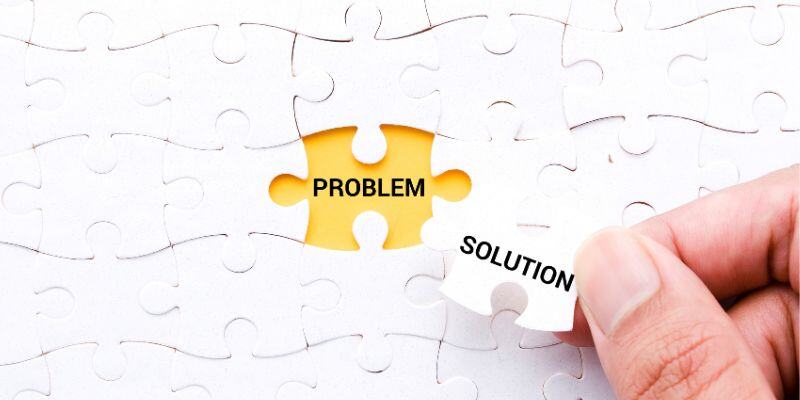Help Your Clients Recommend You.
They’re a sure-fire way to get new clients in the door. Recommendations. Yes, we know it isn't easy, But, these new clients already trust their recommenders. They arrive at your office aware of your reputation and success. It’s a great marketing technique: instead of speaking for your practice to promote it, your practice speaks for itself.
But here’s the problem: According to the 2018 Legal Trends Report, clients aren’t recommending law practices to other people nearly as much as we’d all like.
The 2018 Legal Trends Report came to this conclusion by calculating the legal industry’s Net Promoter Score (NPS). An NPS measures a customer’s loyalty toward and zeal for a business they’ve worked with. It helps businesses anticipate how much future business may come from the recommendations of existing customers, as well as their current clients' satisfaction level.
According to the report, the legal industry’s NPS is 25. That score is 11 to 17 points lower than NPS’s for industries that sell cars, computers, and groceries. And these industries aren’t know for having great customer service.
An NPS isn’t the be-all and end-all for evaluating customer (or client, in this case) experience. But, it does matter. It points to something that’s lacking in the legal industry from the clients' perspective.
We’ve been thinking about why people might not be recommending lawyers to their friends, neighbors, and relatives. And, we think the legal industry can, perhaps, take some wisdom from high NPS-scoring industries.
Lawyers are Different
Even though law practices are businesses, attorneys aren’t like auto-dealers, tech-providers, and supermarkets.
When customers shop for goods, they take a usable commodity away with them. That’s the point of their transaction. They buy something that is wanted or needed. And, when customers are happy about the purchase, they come back for another one.
Not only that: customers are aware of the quality of their purchase from the start. This is typically through branding efforts by the supplier. So, if you are looking for a car, you generally know what build or model you are considering. If you want a car known for safety, for example, maybe a Volvo is on your list. Something sporty? Probably a different manufacturer. Basically, you have some idea of what you are getting for the investment.
But law firms are different. Clients don’t pay for legal services because they saw them in a catalogue or choose an attorney because of earned points or rewards. No one hires a lawyer at the happiest, most confident point in their lives. There’s trepidation involved. Almost every client is wondering what the experience will be like. And, they have some preset expectations. And those aren't always positive.
So, of course auto-dealers, tech-sellers, and supermarkets have a one-up on the legal industry when it comes to NPS’s. They’re easier. Their customers are eager for their services.
But, attorneys can take some learning from this.
Changing the Narrative
The trick, then, is for you to encourage clients to rearrange their thinking about attorneys. Through how you relate with your clients, you can introduce a sense of ease, confidence, and assurance. That ease and confidence will influence how often they recommend your practice to others in need.
From the start
And this starts with an acknowledgment, from the attorney to their clients, that the legal system is not what they are used to. By acknowledging the potential concerns, you break down presumptions. It all starts with a question or two. And some heavy listening. The first question is, do you have any questions?
Then, just answer their questions. As the case evolves, make sure to check in with your clients. Ensure they are clear with where the case is, what possible next steps could look like, and of course, the all important cost and timeline. Basically, make sure your clients understand. Legal technology, like SimpleLaw, makes it easy. With online secure 'chat' features, it's like texting but more secure. Be there every step of the way without fielding phone calls that soak up your workday.
After the case is resolved
The attorney-client relationship should not be strictly business, especially when the case is over. Sure, it's not the same. But staying in touch for possible future legal needs keeps you at the top of their list, not to mention increases the odds clients will refer your firm to others, too.
For one, take time to communicate with your former clients. It can be a simple email. Follow up to see that the case is settled and no other questions have come up. And if a question has come up, take a few minutes to answer. Being present and supportive after the case goes a long way to ensuring your clients feel appreciated. After all, they are more than the bills they paid you.
More than a lawyer or law firm
And include your past clients in how your firm is doing. A simple seasonal greeting sent via email is great. Is your firm involved in the community? Pro bono work? Include that in an email too. After all, you and your firm are more than the cases you manage. You are a member of the community. You volunteer your time at parishes and community centers, pursue hobbies and read strange, non-law-related books and have Spotify playlists with witty and even self-deprecating titles.
Staying in touch via a client newsletter, say quarterly, is inexpensive, efficient, and keeps your client engaged. Constant Contact, and MailChimp offer good rates for this type of service. Hubspot is another great resource that goes beyond email.
However you decide to communicate, the bottom line is this: simply keeping in touch with your clients reinforces the positive, considerate, and friendly experience they had with you and your practice.
Where Do We Go From Here?
Raising the legal industry’s NPS score comes down to transforming the resting perceptions of the legal industry, which aren’t easily changed. Those perceptions are informed by TV presentations of lawyers (and is Annalise Keating anyone’s favorite character?), bad experiences with lawyers (sadly, they do happen), and a general awareness of people’s frustrations with the law. Whether it's a parking ticket or an issue with a real estate transaction, most people have some frustration with the law.
Whatever the case, it comes down to making the transaction between an attorney and a client more personable and friendly. Clients don’t take away a product from a law practice, but they do take an experience, and that experience is either recommendable or not.


